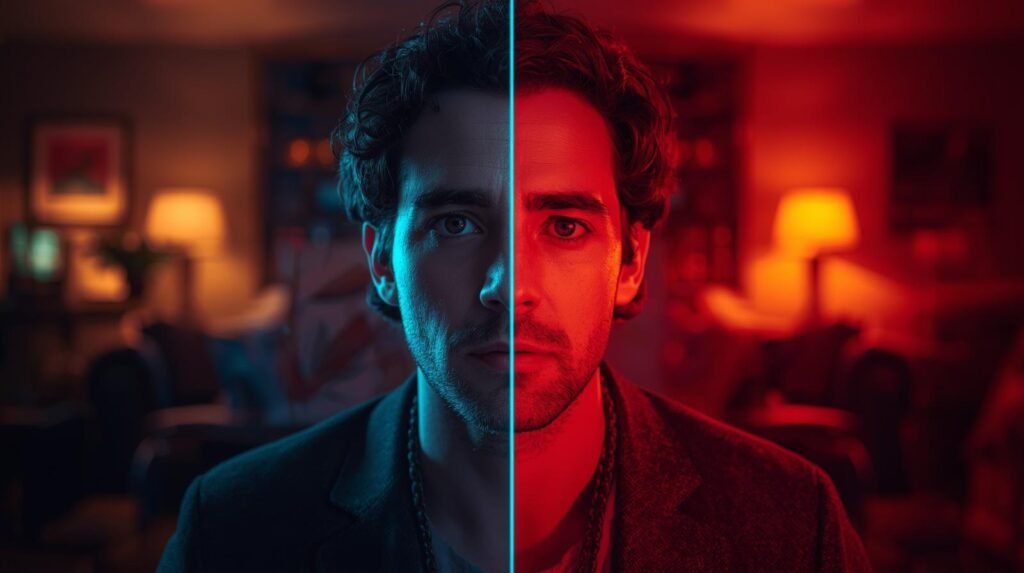Introduction
When it comes to enjoying IPTV without buffering, your internet connection is everything. Think of it like water pipes—if the pipe is too narrow, the flow will struggle. That’s exactly what happens when you try to stream high-definition IPTV on a weak or inconsistent connection.The big debate today is between broadband-vs-fiber internet. Both are popular choices across the UK and worldwide, but when it comes to streaming IPTV smoothly, which one gives you the better bang for your buck?
Let’s break it down in detail.
Understanding the Basics
What Is Broadband Internet?
Broadband vs. Fiber is the term for high-speed internet that’s always on and faster than traditional dial-up. It includes technologies like DSL, cable, and even satellite internet.
-
DSL (Digital Subscriber Line) uses telephone lines to deliver internet.
-
Cable broadband uses coaxial cables, typically offering better speeds than DSL.
-
Satellite broadband beams signals from space, useful in rural areas but often slower with higher latency.
While broadband has powered IPTVUK for years, it does have limitations, especially as content quality has moved from SD to HD, 4K, and even 8K.
What Is Fiber Internet?
Fiber optic internet uses strands of glass or plastic to transmit data as light signals. This allows data to travel at near-light speeds with incredible efficiency.
-
Fiber connections deliver symmetrical speeds—both upload and download are fast.
-
They offer superior stability, with minimal signal loss over distance.
Fiber is quickly becoming the gold standard for streaming UK IPTV, thanks to its blazing speeds and low latency.
Key Factors That Impact broadband-vs-fiber
Download and Upload Speeds
The faster your download speed, the smoother your IPTV stream. For example:
-
HD IPTV needs about 5–10 Mbps.
-
flash 4K IPTV may require 25 Mbps or more per device.
Fiber connections easily exceed these requirements, while broadband can struggle with multiple streams.
Latency and Ping
Latency is the time it takes for data to travel from your device to the server and back. High latency causes lag and buffering—annoying during live sports.
Fiber has significantly lower latency than broadband, making it ideal for live IPTV UK broadcasts and interactive content.
Bandwidth Consistency
Even if your broadband package advertises “up to 100 Mbps,” the actual speed often fluctuates during peak hours because of shared infrastructure. Fiber, on the other hand, provides more consistent speeds, which is crucial for uninterrupted streaming.
Broadband for IPTV Streaming
Pros of Broadband
-
Widespread availability: Most UK households can access some form of broadband.
-
Affordable pricing: Entry-level packages are budget-friendly.
Cons of Broadband
-
Speed caps: DSL or cable may not support multiple 4K streams.
-
Shared connections: Cable broadband often slows down during peak evening hours.
-
Higher latency: This affects live IPTV channels and cloud-based features.
Fiber Internet for IPTV Streaming
Pros of Fiber
-
Blazing-fast speeds: Perfect for 4K/8K IPTV and multiple devices.
-
Low latency: Smooth live sports and real-time events.
-
Stable performance: No major speed drops during peak hours.
Cons of Fiber
-
Limited availability: Not all rural areas have access yet.
-
Installation costs: In some regions, setup can be pricier.
Streaming IPTV on Broadband vs. Fiber
SD and HD Streaming Performance

Broadband can handle SD and sometimes HD IPTV fairly well, provided the speed is stable. However, fiber ensures that HD streaming remains crystal clear even during peak usage times.
4K and UHD Streaming
When streaming in 4K, fiber is the clear winner. Broadband connections often buffer or downgrade resolution if speeds drop below the required threshold.
Multiple Device Streaming
Households with several TVs or IPTV boxes streaming simultaneously benefit greatly from fiber’s higher bandwidth. Broadband can choke under pressure, especially in shared buildings.
Real-World Use Cases
Urban Households
In cities where fiber is widely available, it’s the logical choice. Urban users often run smart TVs, IPTV boxes, and other connected devices simultaneously—fiber handles this with ease.
Rural and Suburban Areas
Broadband remains a practical option where fiber hasn’t reached yet. A stable broadband connection with decent speeds can still provide a good IPTV experience for single streams.
Cost Comparison
Monthly Pricing
Broadband vs. Fiber plans usually start cheaper. Fiber plans are slightly more expensive but offer more value for speed and stability.
Long-Term Value
While fiber might cost more upfront, the better reliability and speed often make it a smarter long-term investment—especially as British IPTV content quality continues to improve.
Reliability and Maintenance
Outages and Weather Impact broadband-vs-fiber
Broadband (especially satellite) can be affected by bad weather or network congestion. Fiber, with its underground infrastructure, is less prone to disruptions.
Technical Support and Downtime broadband-vs-fiber
Fiber providers typically offer better service level agreements and quicker issue resolution than traditional broadband companies.
IPTV Provider Recommendations
Your IPTV providerhttps://ukstreaming.store should match your internet’s capabilities. If you have fiber, look for 4K IPTV packages . If on broadband, stick to HD to avoid buffering. Also:
-
Use a wired Ethernet connection for the best performance.
-
Keep your IPTV app updated regularly.
Future of Streaming and Internet Technology
Fiber coverage is rapidly expanding across the UK. As 8K streaming and interactive IPTV services grow, fiber will become less of a luxury and more of a necessity. Broadband will still serve remote areas, but fiber is the clear future.
Conclusion
When it comes to Broadband vs. Fiber for IPTV streaming, fiber clearly takes the crown. With faster speeds, lower latency, and better reliability, it ensures a smooth, buffer-free viewing experience.
Broadband still has its place, especially in areas where fiber isn’t available yet, but if you have the option—fiber is the smarter, future-proof choice for IPTV streaming also gives FREE TRAIL .
FAQs
1. Is fiber internet worth it just for IPTV?
Yes. Fiber ensures consistent, high-quality streaming, especially for HD, 4K, and live IPTV channels.
2. Can I stream IPTV reliably on DSL broadband?
You can for SD or low-quality HD, but expect buffering with multiple streams or higher resolutions.
3. How much speed do I need for 4K IPTV streaming?
At least 25 Mbps per device is recommended for smooth 4K playback.
4. What happens if multiple people stream at once?
On broadband, this can cause buffering. Fiber handles multiple simultaneous streams without issues.
5. Is fiber available everywhere in the UK?
Not yet, but coverage is growing quickly, especially in urban and suburban areas.
